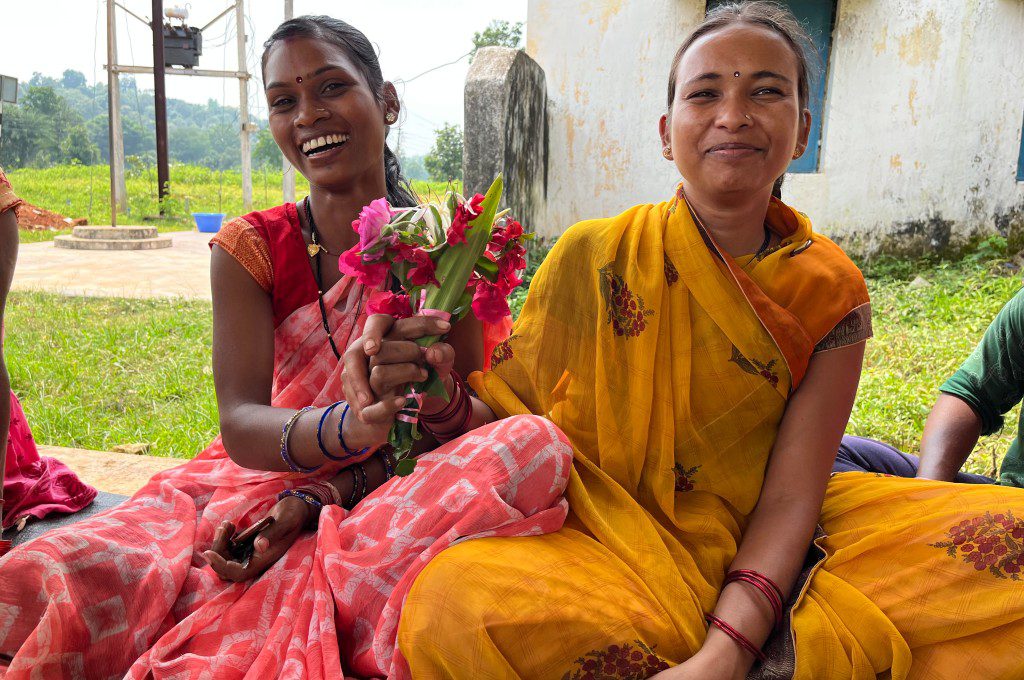Like any other job, entrepreneurship does not require anyone to possess any degree or experience. Anyone passionate about creating something and learning can become an entrepreneur.
At Udyogini, we see entrepreneurship as a magical path to empower the women of rural India financially and socially. Self-employment and income can be increased by bringing micro, small, and medium-sized businesses to the villages. Most importantly, it will help bridge the real-time poverty and income gap challenges.
The more women participate in the country’s economic development, the easier it will be to combat prevalent problems like poverty, illiteracy, gender inequality, and climate change.
It all sounds great. Is it, however, that simple to start a women’s business?
The gender gap prevalent in our society is enormous. According to the WEF (World Economic Forum) report, if we want to close the gender gap in any economic sector, it will require sustained efforts for about 135 years (2021).
The concern is whether women must wait so long to live independently of their rights to earn and participate in countries’ economies. How many more generations will we have to sacrifice to fight for women’s rights, which were always her birthright? Can’t we choose some quick way to fill this gender gap?
The answer is: We can do this, and one way is through women’s economic empowerment. Women becoming financially independent will automatically help combat gender inequality as they earn higher status in the community. Economic empowerment helps women build self-confidence and decision-making power, leading society toward a gender-just world.
The following are some of the challenges in the way of women’s entrepreneurship:
Balancing family and enterprise together
Our society is still male-dominated, and women are not treated as equal partners inside and outside the house’s four walls. Still following the traditional role, women are expected to fulfill all the familial duties of running a household and taking care of the family, irrespective of how busy they are with managing the business. They are asked to prioritise family work above business. Managing households and enterprises with minimal time often causes hindrances in building and running an enterprise.
Access to the financial capital
People in our nation tend to be less encouraging of women’s participation in economic production. Even if they engage in economic activity, there is little financial support. A financial challenge is deeply related to a need for access to and control over resources. Ironically, about 75% of the full-time workers on Indian farms are women; on average, only 12.9% of Indian women own land. (As per Agricultural Census 2015). Most women, especially in rural areas, don’t have property or assets in their names, which can hinder them when applying for collateral loans or private financing. Even when the family encourages them to borrow a loan, the complex procedure (in terms of fulfilling the eligibility criteria and documentation procedure) to obtain a bank loan usually discourages women from establishing an enterprise. Moreover, the family members of women entrepreneurs in rural areas need more confidence in running the business successfully. Women entrepreneurs even face problems financing enterprises’ day-to-day operations, including purchasing raw materials and paying wages to labourers. The lack of access to funds makes women entrepreneurs extremely vulnerable. It makes them dependent on their family members entirely.
Lack of skill and knowledge to run the enterprise
Women in rural areas must be more involved in decision-making, especially business-related ones. Male members instruct them to do things as planned. As male members of production decide everything from marketing, women need to gain the knowledge to start and run an enterprise. Due to their minimal exposure to the outside world, women entrepreneurs need help in managerial functions like planning, organising, controlling, coordinating, staffing, directing, motivating, etc.
Access to the market ecosystem
Marketing means mobility and confidence in dealing with the external world; social conditioning has discouraged both women from developing. Even when they are otherwise in control of an enterprise, they often depend on male members of the family in this area.
Most women entrepreneurs try to market their products within the rural market while facing many competitors. They need an idea of where to sell their products for maximum benefit. Because of inadequate marketing, they need help finding the proper market for their products and depend on mediators. A considerable share of the profit goes to these middlemen.
Family support
Women in rural areas are dependent on their family members for all the decisions related to running and establishing enterprises. Without the support of family, women can’t start an enterprise. For any enterprise to properly install and manage profit, it requires time, dedication, and motivation. Often, it has been seen in rural areas that women are pressured to benefit from the enterprise as soon as they start it. If they fail to do so, they lose the trust and support of their family members and are asked to shut down the business.
Women face many more challenges in their micro-entrepreneurship; we have only highlighted a few more significant ones based on our field experiences.
To address the challenges in women’s micro-entrepreneurship, Udyogini implements the following intervention strategies:
Support in product development and building marketing channels
Due to the traditional stigma associated with entrepreneurship that it is for men; women often need access to knowledge about the marketing of their products. They are asked to support production-related activities, and male family members do all the marketing work. Due to this reason, women do not get any say in their income.
Entrepreneurs often face challenges in marketing their products at an excellent price to realise the maximum benefit from them. They need help either due to high input costs or the availability of similar products at a lower rate in the market.
Udyogini helps bridge the gap by encouraging women to establish Women Enterprise Groups (WEGs), where they are provided with training, technical assistance, exposure visit, and handhold support to women entrepreneurs to improve productivity and reduce input costs. Also, producers are encouraged to aggregate their produce in a single place (e.g., in VLRAC or WEG) and sell it in bulk, reducing the transportation cost, eliminating the dependency on mediators for marketing, and increasing the bargaining power of women entrepreneurs.
In addition, Udyogini makes women aware of the benefits the group can offer them, which include easy and timely loan lending and the removal of dependency on local moneylenders; thereby, women can get finance at a very minimal interest rate to start the enterprise. It builds the strength and confidence among women to create their ventures.
Udyogini connects women from production to markets through an end-to-end, transformative approach, creating jobs at every node along the value chain. They run programs to develop women’s skills and capacity to participate in the production system more effectively.
Introducing gender training to break stereotypes
As we all know, the stereotyping of women’s roles is still prevalent in our country and is much more prevalent in rural areas. Society and the family still think women’s primary function is limited to household chores. Even though they engage in income-generating activities, they are still expected to complete house chores and take care of the family without support from the male members.
Udyogini is providing gender training to women entrepreneurs to make them aware that all gender roles are created by society and it is not necessary to abide by them. Family members are also motivated to accept the changing role of women entrepreneurs at home and to extend their support in handling multiple responsibilities. Women are provided with training and skills to build their confidence to run the enterprise successfully and become independent enough to break the stereotypes made by society.
Social mobilisation and awareness of economic outcomes
Building a society that supports women’s entrepreneurship is the biggest challenge that cannot be easily and quickly overcome. Any social change requires rigorous and sustained effort over a long period.
Udyogini conducts awareness campaigns in rural areas about the economic benefits and future consequences of women’s involvement in work. By involving women in village-level meetings and encouraging them to participate and make decisions for building their enterprises, Udyogini helps women entrepreneurs speak up and instil confidence and financial independence.
As quoted by Pinki Bairwa from Khandar, Rajasthan, ‘Udyogini ke aane se pehle mujhe kisi se baat karne se bhi jhijhak mehsus hoti thi par VDC group ke member banne ke baad mujhe bhi apni baat rakhne ka mauka mila aur ab itna confidence badh gaya
Pinki Bairwa has been involved with Udyogini since 2019 and is a member of the Village Development Committee (VDC). With her zeal and curiosity to learn and become financially independent, she is on the board of directors of FPO and is involved in making business plans. This helps her become economically strong and builds her decision-making power and confidence.
Udyogini focuses on building female entrepreneurs to help them with the following personal and social benefits:
1. Economic empowerment
2. Improved awareness
3. Build confidence
4. Better living standards Strengthen decision-making power.



